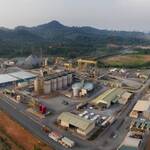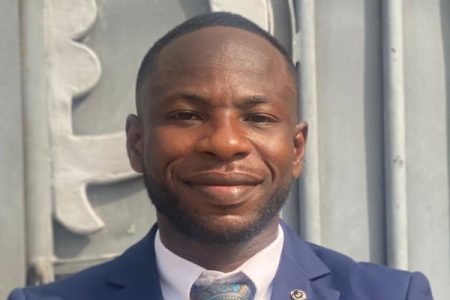A concerned Ghanaian citizen, Kwame Kyei Addo, has petitioned former President John Dramani Mahama to urgently intervene in the escalating crisis surrounding the Bogoso-Prestea Mine.
The mine has remained dormant for over eighteen months due to a legal impasse and operational collapse.
Mr. Addo argued that the issue transcends corporate interest and constitutes a national emergency, threatening the livelihoods of hundreds of workers, the stability of the host communities, and Ghana’s reputation as a safe destination for mining investment.
In his petition, Mr. Addo appealed to President Mahama to leverage his experience, stature, and diplomatic skill to help mediate a resolution that serves the best interest of the country. He believes the former President’s intervention could bring stakeholders together, restore investor confidence, and safeguard the social and economic fabric of Prestea and its environs.
Collapse of operations and a desperate workforce
The mine’s current state, according to the petitioner, is a shadow of its former self. Workers have gone unpaid for over fifteen months.
Underground tunnels are flooded. Illegal mining is rife. And basic safety infrastructure has collapsed, leading to fears of environmental degradation and possible disasters.
At the heart of the crisis is a legal tussle involving the current leaseholder, Future Global Resources (FGR), and two other entities—Blue Gold and Heath Goldfields Ltd.
Lease termination
FGR acquired the Bogoso-Prestea Mine from Golden Star Resources in October 2020 but quickly ran into financial and operational trouble.
The company allegedly failed to meet salary obligations, maintain safety standards, or make meaningful investments in the mine. After years of frustration, the Minister of Lands and Natural Resources issued a 120-day ultimatum on August 14, 2023, demanding that FGR cure all breaches of its mining lease.
When the ultimatum expired without improvement, a further 120 days was granted in April 2024.
Still, the company failed to meet its obligations, prompting the government to terminate the lease.
Subsequently, on November 12, 2024, then Minister Samuel Abu Jinapor approved a recommendation from the Minerals Commission to transfer the lease to Heath Goldfields Ltd.
The decision was based on the latter’s superior technical and financial capacity, as well as its experience in managing distressed mining assets.
However, this reassignment sparked a fresh legal dispute.
FGR and Blue Gold sued the government, claiming the termination of their lease and the reassignment to Heath Goldfields was arbitrary and unlawful.
The case is currently pending before the Accra High Court, paralyzing activities at the mine.
Lack of recognition fuels uncertainty
Despite being named as the new operator, Heath Goldfields Ltd. has not received formal recognition from the government as the legitimate leaseholder.
This lack of clarity has led to operational inertia. Workers are uncertain about who employs them. Contractors are reluctant to commit resources.
And investors are wary of backing a company without a clear legal mandate. According to Mr. Addo, this situation has only deepened the crisis and delayed recovery efforts.
FGR launches billion-dollar arbitration
Heath Goldfields has also raised concerns that the ongoing litigation, combined with warning letters issued to its business partners, has made it nearly impossible to mobilize the resources required to pay worker entitlements or restart production.
While the company claims it stands ready to invest in the mine’s recovery, it insists that it cannot do so without the full backing of government as the legitimate leaseholder.
Meanwhile, FGR has escalated the matter further by initiating international arbitration proceedings against the Government of Ghana, seeking damages of one billion dollars.
Mr. Addo cautions that a ruling in FGR’s favor could have dire financial implications for the country and damage its reputation in global mining circles.
Global lessons on mining dispute resolution
In his petition, Mr. Addo draws parallels with other mining disputes across Africa and beyond, where governments have played an active role in resolving lease challenges without prolonged litigation.
He cites examples such as Ghana’s reversal of the lease termination for Resolute Mining at Bibiani, Guinea’s reassignment of Bellzone Mining’s lease with compensation, Papua New Guinea’s negotiated settlement with BHP Billiton over Ok Tedi, and Zimbabwe’s restructuring of Zimplats to meet local ownership demands.
These cases, he argues, demonstrate the value of negotiation, compromise, and timely government action.
Proposed strategies to end the crisis
To end the impasse, Mr. Addo suggests a multipronged strategy. He proposes the appointment of a neutral mediator to facilitate dialogue among FGR, Blue Gold, and Heath Goldfields, with the aim of achieving an out-of-court settlement that satisfies all parties.
If FGR’s grievances are proven, arbitration or a negotiated compensation package could be explored.
Should that fail, he recommends a temporary state takeover of the mine to stabilize operations and protect assets. Another option, he says, could be the division of the mine into multiple leases or the creation of a joint venture among the disputing parties, considering the mine consists of distinct concessions that could be operated separately.
Mr. Addo also urges the government to immediately formalize Heath Goldfields’ recognition as the legitimate leaseholder, even as legal proceedings continue.
He believes such a move would reduce uncertainty, provide a basis for accountability, and offer a framework for the payment of worker arrears and the restoration of operations.
He argues that similar precedents exist in the Ewoyaa Lithium Project and the recent Takoradi Gold case, where government action expedited recovery.
Call for constitutional compliance
In addition to resolving the lease dispute, Mr. Addo recommends that the government act decisively to halt environmental damage and illegal mining activities at the site.
He also calls for the expedited ratification of mining leases in Parliament, as required by Article 268(1) of the Constitution and the Minerals and Mining Act, 2006 (Act 703).
These steps, he believes, are necessary to protect national resources and restore public trust in the sector.
A crisis that demands leadership
Mr. Addo stresses that the Bogoso-Prestea crisis is not merely a legal matter—it is a humanitarian, economic, and environmental emergency.
He believes that former President Mahama’s leadership could provide the needed momentum to resolve the impasse and chart a new path for one of Ghana’s most historic gold mines.
- Wednesday, May 7, 2025 Newspaper Headlines - 7 May 2025
- Bawumia urges unity, end to politicisation of Bawku conflict - 7 May 2025
- CJ’s saga: Supreme Court delivers 5:0 and 3–2 decisions - 7 May 2025
Related posts:

